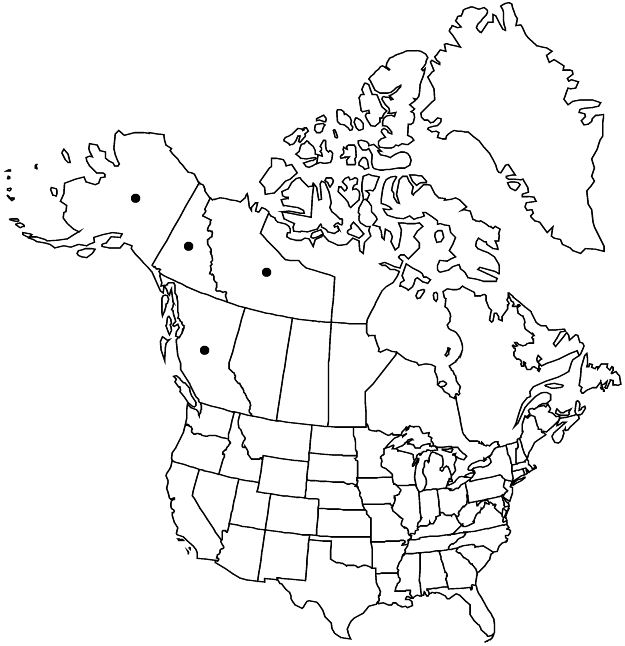Spiraea stevenii
in N. L. Britton et al., N. Amer. Fl. 22: 247. 1908.
Shrubs, 1–10 dm. Stems ascending to prostrate, rarely dying to ground, rarely branched. Leaves: petiole 0.5–6 mm; blade ovate to elliptic, 1–6 × 0.5–2.5 cm, membranous, base obtuse, margins regularly to irregularly serrulate on distal 1/4–1/2 to crenate or entire (long-shoot leaves sometimes serrate on full blade), teeth rounded, number of primary and secondary serrations 0–1 times number of secondary-veins (excluding inter-secondary veins), venation pinnate cladodromous, secondary-veins not prominent, apex obtuse, surfaces glabrous. Inflorescences mostly terminal, corymbiform (dense), 1–3 [–5] × 0.5–3 [–5] cm height usually 1 times diam.; branches rarely in axils of leaves, usually glabrous or puberulent, sometimes villous. Pedicels 1–5 (–8) mm, usually glabrous or puberulent, sometimes villous. Flowers 4–6 mm diam.; hypanthia hemispheric, 0.7–1 mm, abaxial surface puberulent to pubescent, adaxial glabrate to pubescent; sepals triangular, 1–1.5 mm; petals white, orbiculate, 1.5–2.5 mm; staminodes 10–12; stamens 18–22, 2 times petal length. Follicles oblanceoloid, 2.5–3.5 mm, puberulent.
Phenology: Flowering Jun–Sep; fruiting Jul–Nov.
Habitat: Meadows, tundra, open woods, thickets, stream banks, lake edges, alpine areas
Elevation: 0–2000 m
Distribution

B.C., N.W.T., Yukon, Alaska, e Asia
Discussion
Spiraea stevenii has been frequently referred to as S. beauverdiana; the nomenclatural history of this was well summarized by L. J. Uttal (1973), who noted that the type for S. beauverdiana is a specimen that belongs in the circumscription of S. aemeliana. A study of the pollen morphology of S. betulifolia and S. stevenii (S. beauverdiana) (T. A. Poljakova and G. N. Gataulina 2008) showed substantial differences between these two taxa. Examination of the carpel anatomy of various species of Spiraea (C. Sterling 1966) showed that S. stevenii differs from other species except S. lucida.
Selected References
None.